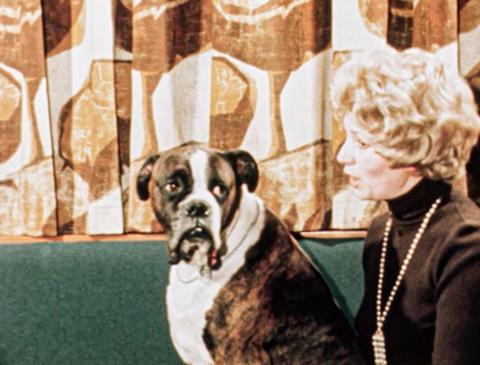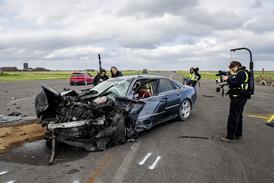“It’s like being talked at for six hours by a coked-up bipolar genius at an aggressively loud house party”

Shifty, BBC iPlayer
“It is, as the blurb has it, about how ‘extreme money and hyper-individualism… undermined the fundamental structures of mass democracy’; it’s about how and why British society is now so fragmented, atomised and siloed. Yet that barely scratches the surface of this gloriously obtuse series. It’s like being talked at for six hours by a coked-up bipolar genius at an aggressively loud house party. It is a thrilling, maddening, brilliant and soul-destroying portrait of a faithless, jaded nation.”
Chris Bennion, The Telegraph
“It isn’t always cohesive, but it is very entertaining, like dreaming about Britain after eating too much cheese. Curtis’s critics could say this is selective culling to fit a narrative and oversimplifies big, complex national issues. You could cherry-pick other clips to make a different argument. Yes, but as an immersive piece of television it works, and is frequently funny.”
Carol Midgley, The Times
“Now that I have learned to let Adam Curtis’s films wash over me, to pay attention but not drill down as they go, then wait and see how they work on my consciousness afterwards, I manage much better and admire much more. But perhaps that is partly a function of context too. It is an increasing rarity to stand in the presence of anyone with an idea, a thesis, that they have thoroughly worked out to their own satisfaction and then present stylishly, exuberantly and still intelligently. The hell and the handcart feel that bit more bearable now.”
Lucy Mangan, The Guardian
Pile Up: World’s Biggest Crash Test, Channel 4
“Being set up as a two-hour Sunday-night TV event means that the 60-second experiment needs an enormous amount of padding, so we are treated to mind-numbing detail about how the crash was set up and risible dollops of repetition from the drooling voiceover. The constant advert breaks will test the patience of a saint; the reams of dashcam footage of nasty crashes feels cheap and tawdry. If you’re still awake by the time the staged crash happens, it is unavoidably spectacular and horribly unnerving.”
Chris Bennion, The Telegraph
“The thing is, none of this programme’s manifest snags really matter. The experiment may not have worked on its own terms, but the sense of dread when the innocent drivers are unknowingly approaching the hazard is real, as is their emotional reaction when they see the state their cars are left in. If people at home are disturbed enough to slow down and pay more attention next time they’re on a motorway, lives will be saved. Pile Up does get to somewhere worthwhile in the end, even if it takes a circuitous route.”
Jack Seale, The Guardian
































No comments yet